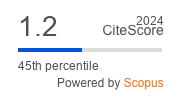Analysis of the features of planning bioequivalence studies with adaptive design for drug products analogous to endogenous compounds ademetionine
https://doi.org/10.33380/2305-2066-2025-14-2-2028
Abstract
Introduction. Adaptive design in clinical bioequivalence studies offers a more flexible approach, allowing for modifications to protocols during the trial based on accumulated data. This is particularly relevant for drugs that are analogs of endogenous compounds, such as ademetionine, due to the presence of endogenous concentrations, potential physiological fluctuations, and homeostatic mechanisms. Given that ademetionine is included in the clinical guidelines by the Ministry of Health of the Russian Federation for treating various liver diseases, there is significant interest in developing generic formulations, which necessitates careful planning of clinical studies.
Aim. The aim of this work is to analyze approved protocols for bioequivalence studies with adaptive designs for a drug product that is an analog of the endogenous compound ademetionine, specifically enteric-coated tablets.
Materials and methods. A search was conducted in the database of approved clinical trials by the State Register of Medicines of the Ministry of Health of the Russian Federation using keywords "adaptive design" and "bioequivalence" for the period from 2023 to 2024.
Results and discussion. The article analyzes nine bioequivalence protocols with adaptive designs related to Potvin C's methodology for drugs analogous to the endogenous compound ademetionine in enteric-coated tablet form. The primary endpoints were pharmacokinetic parameters Cmax and AUC0–t. Ademetionine was studied as the evaluated analyte. In 77.8 % of the protocols, there was a planned assessment of the endogenous background of ademetionine followed by adjustments to pharmacokinetic parameters. Sample size calculations were not performed in these protocols due to the lack of reported values for the coefficient of intra-individual variation (CVintra) for Cmax and AUC0–t of ademetionine in literature.
Conclusion. The analysis results indicate that a well-planned bioequivalence study with an adaptive design (until CVintra values for ademetionine are published in specialized literature) is rational for developing generic formulations of ademetionine, with an assessment of the endogenous background. Considering the modified dosage form, it is necessary to conduct bioequivalence studies with administration both fasting and after meals.
Keywords
About the Author
N. N. EremenkoRussian Federation
8/2, Petrovsky Boulevard, Moscow, 127051;
8/2, Trubetskaya str., Mosсow, 119991
References
1. Lee J., Feng K., Xu M., Gong X., Sun W., Kim J., Zhang Z., Wang M., Fang L., Zhao L. Applications of Adaptive Designs in Generic Drug Development. Clinical Pharmacology & Therapeutics. 2021;110(1):32–35. DOI: 10.1002/CPT.2050.
2. Maurer W., Jones B., Chen Y. Controlling the type I error rate in two-stage sequential adaptive designs when testing for average bioequivalence. Statistics in Medicine. 2018;37(10):1587–1766. DOI: 10.1002/SIM.7614.
3. Hinds D., Sun W. An Adaptive Three-Arm Comparative Clinical Endpoint Bioequivalence Study Design With Unblinded Sample Size Re-Estimation and Optimized Allocation Ratio. Pharmaceutical Statistics. 2024;24(1):e2439. DOI: 10.1002/pst.2439.
4. Molins E., Labes D., Schütz H., Cobo E., Ocaña J. An iterative method to protect the type I error rate in bioequivalence studies under two-stage adaptive 2×2 crossover designs. Biometrical Journal. 2021;63:122–33. DOI: 10.1002/bimj.201900388.
5. Isogawa N., Grieve A., Ishii R., Maruo K. Performance Evaluation of Interim Analysis in Bioequivalence Studies. Therapeutic Innovation & Regulatory Science. 2024;58(5):863–881. DOI: 10.1007/s43441-024-00664-z.
6. Francioso A., Fanelli S., d’Erme M., Lendaro E., Miraglia N., Fontana M, Cavallaro R. A., Mosca L. Pharmacokinetic properties of a novel formulation of S-adenosyl-l-methionine phytate. Amino Acids. 2021;53(10):1559–1568. DOI: 10.1007/S00726-021-03076-7.
7. Baden K. E. R., McClain H., Craig E., Gibson N., Draime J. A., Chen A. M. H. S-Adenosylmethionine (SAMe) for Liver Health: A Systematic Review. Nutrients. 2024;16(21):3668. DOI: 10.3390/nu16213668.
8. Marzo A., Rescigno A. Pharmacokinetics of endogenous substances: some problems and some solutions. European Journal of Drug Metabolism and Pharmacokinetics. 1993;18(1):77–88. DOI: 10.1007/BF03220010.
9. Corrillero Bravo A., Ligero Aguilera M. N., Marziali N. R., Moritz L., Wingert V., Klotz K., Schumann A., Grünert S. C., Spiekerkoetter U., Berger U., Lederer A.-K., Huber R., Hannibal L. Analysis of S-Adenosylmethionine and S-Adenosylhomocysteine: Method Optimisation and Profiling in Healthy Adults upon Short-Term Dietary Intervention. Metabolites. 2022;12(5):373. DOI: 10.3390/metabo12050373.
10. Kirsch S.H., Knapp J.-P., Geisel J., Herrmann W., Obeid R. Simultaneous quantification of S-adenosyl methionine and S-adenosyl homocysteine in human plasma by stable-isotope dilution ultra performance liquid chromatography tandem mass spectrometry. Journal of Chromatography B. 2009;877(30):3865–3870. DOI: 10.1016/j.jchromb.2009.09.039.
11. Zhang J., Liu H., Tang L., Lin H., Yao Y., Tong Y., Jin M., Wang K. Pharmacokinetics and food impact assessment of ademetionine enteric-coated tablet as an endogenous substance drug in healthy Chinese volunteers. Journal of Clinical Pharmacy and Therapeutics. 2022;47(6):738–744. DOI: 10.1111/jcpt.13601.
12. Potvin D., DiLiberti C. E., Hauck W. W., Parr A. F., Schuirmann D. J., Smith R. A. Sequential design approaches for bioequivalence studies with crossover designs. Pharmaceutical Statistics. 2008;7(4):245–62. DOI: 10.1002/pst.294.
13. Cameron B., Ferreira L., MacDonald I. D. Pharmacokinetic study of a novel oral formulation of S-adenosylmethionine (MSI-195) in healthy subjects: dose escalation, food effect and comparison to a commercial nutritional supplement product. BMC Pharmacology and Toxicology. 2020;21:88. DOI: 10.1186/s40360-020-00466-7.
Supplementary files
|
|
1. Графический абстракт | |
| Subject | ||
| Type | Other | |
View
(1MB)
|
Indexing metadata ▾ | |
Review
For citations:
Eremenko N.N. Analysis of the features of planning bioequivalence studies with adaptive design for drug products analogous to endogenous compounds ademetionine. Drug development & registration. 2025;14(2):204-211. (In Russ.) https://doi.org/10.33380/2305-2066-2025-14-2-2028










































